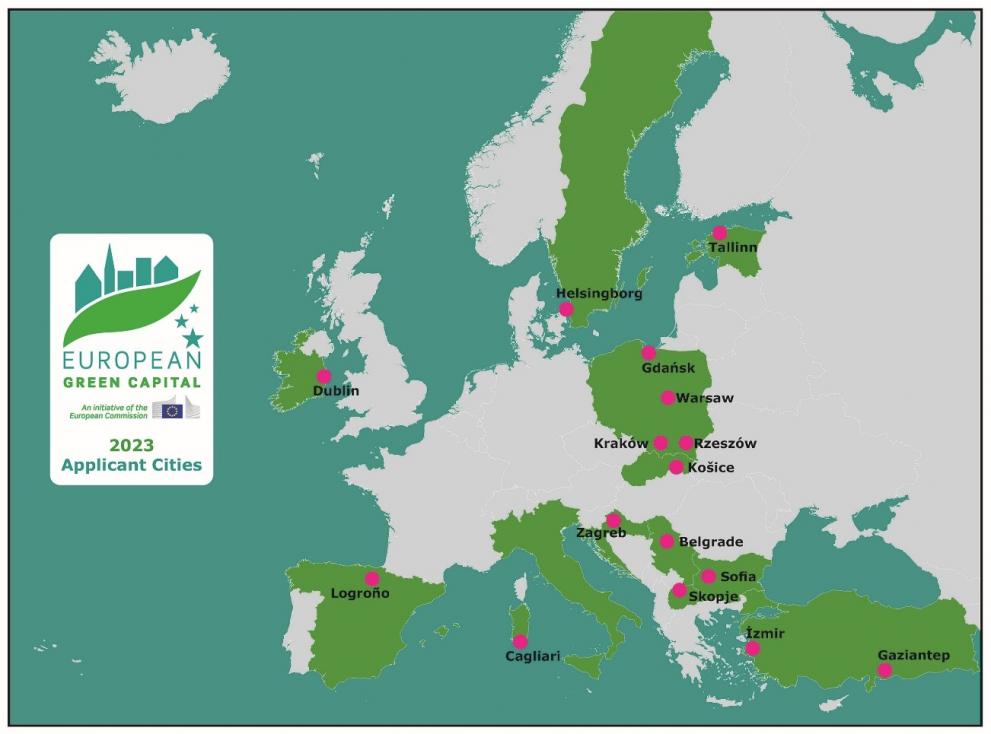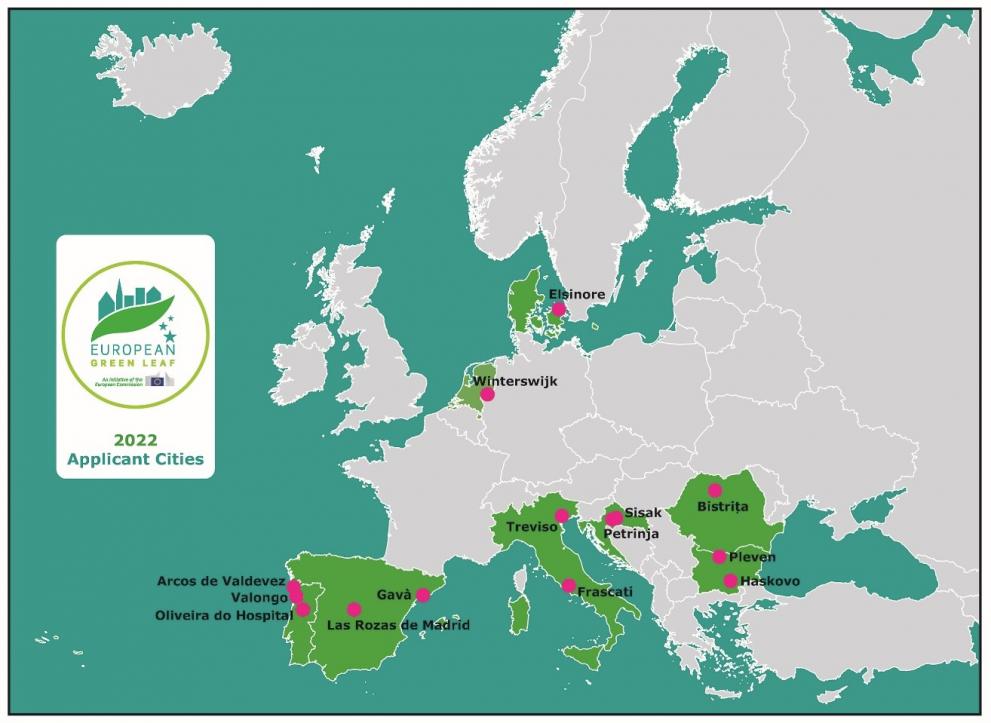The new cycle of European green city awards has seen 30 cities from across Europe competing to become Europe’s next European Green Capital and European Green Leaf Award winners. 16 cities from 12 countries have applied for the European Green Capital 2023 (EGCA 2023) competition, while 14 cities from eight countries have entered the European Green Leaf 2022 (EGLA 2022) competition. The winners will be announced in 2021 and will receive a combined financial prize fund of one million euro.
Commissioner for the Environment, Oceans and Fisheries, Virginijus Sinkevičius, said:
More and more cities in Europe are choosing to go green. This is even more encouraging in the context of the European Green Deal roll out and recovery from the pandemic. European Green Capital and Green Leaf cities show that even in the most difficult circumstances, cities can become fit for life. This means more car-free zones, more public spaces for outdoor leisure activities, cycling paths and pedestrian zones, but also new, innovative urban solutions.
The 16 cities competing for the European Green Capital 2023 Award are: Belgrade, Serbia; Cagliari, Italy; Dublin, Ireland; Gaziantep, Turkey; Gdańsk, Poland; Helsingborg, Sweden; İzmir, Turkey; Košice, Slovakia; Krakow, Poland; Logroño, Spain; Rzeszów, Poland; Skopje, Republic of North Macedonia; Sofia, Bulgaria; Tallinn, Estonia; Warsaw, Poland; and Zagreb, Croatia (see map below).

The 14 cities competing for the European Green Leaf 2022 Award are: Arcos de Valdevez, Portugal; Bistriţa, Romania; Elsinore, Denmark; Frascati, Italy; Gavà, Spain; Haskovo, Bulgaria; Las Rozas de Madrid, Spain; Oliveira do Hospital, Portugal; Petrinja, Croatia; Pleven, Bulgaria; Sisak, Croatia; Treviso, Italy; Valongo, Portugal; and Winterswijk, the Netherlands (see map below).

Next steps
A panel of twelve independent experts will now begin a technical assessment of each application to select a shortlist of finalist cities for both awards. The panel will assess the European Green Capital applications on the basis of 12 environmental indicators. A shortlist of finalist cities will be announced in the spring of 2021 and the shortlisted cities will be invited to present to an international Jury, chaired by the European Commission. The EGCA 2023 finalist cities will each present an action plan on how their city intends to fulfil its European Green Capital year, projects / actions it intends to put in place to enhance the city's environmental sustainability, as well as a communications strategy.
For the European Green Leaf Award, the expert panel will assess the applications based on six environmental topic areas. Similarly, a shortlist of EGLA 2022 finalist cities will be announced in the spring of 2021, to present their proposals to the international Jury.
The winners will be announced at an awards ceremony in 2021 in Lahti, Finland, which is the European Green Capital for 2021. The EGCA 2023 winning city will receive €600 000, while up to two EGLA 2022 winning towns/cities will receive €200 000 each to be used in projects / actions to enhance the city’s environmental sustainability and to achieve the city’s sustainability vision.
Background
With more than two thirds of Europe’s population living in urban areas, the European Green Capital and European Green Leaf Awards aim to recognise the environmental achievements of cities and towns that strive for urban sustainability and eco-innovation, and inspire others to take positive action in making their cities fit for life.
Winning the European Green Capital and European Green Leaf Awards is a seal of approval by the European Commission and brings many benefits: increased international media coverage, a boost in local pride, a greater focus on environmental projects, and increased foreign investment. All finalist and winning cities also gain access to a network of previous finalists and winning cities where they share learnings on how to overcome key challenges.
Thirteen other cities have won the European Green Capital Award to date: Stockholm (2010), Hamburg (2011), Vitoria-Gasteiz (2012), Nantes (2013), Copenhagen (2014), Bristol (2015), Ljubljana (2016), Essen (2017), Nijmegen (2018), Oslo (2019), Lisbon (2020), Lahti (2021) and Grenoble (2022).
Following the success of the European Green Capital Award, the European Green Leaf Award was established in 2015 to recognise the environmental efforts and achievements of smaller towns and cities with 20 000 to 99 999 inhabitants. The same panel of 12 experts assesses the applications received based on six environmental topic areas and selects the finalists.
Eleven other cities have won a European Green Leaf Award so far: Mollèt del Valles, Spain and Torres Vedras, Portugal (2015); Galway, Ireland (2017); Leuven, Belgium, and Växjö, Sweden (2018); Cornellà de Llobregat, Spain, and Horst aan de Maas, the Netherlands (2019); Limerick, Ireland and Mechelen, Belgium (2020); and Gabrovo, Bulgaria and Lappeenranta, Finland (2021).
For more information:
Websites:
- https://ec.europa.eu/environment/europeangreencapital/
- https://ec.europa.eu/environment/europeangreenleaf/
Twitter: @EU_GreenCapital
Facebook: https://www.facebook.com/EuropeanGreenCapitalAward
LinkedIn: European Green Capital Award EU
EU urban environment policy: https://ec.europa.eu/environment/urban/index_en.htm
Details
- Publication date
- 18 February 2021

